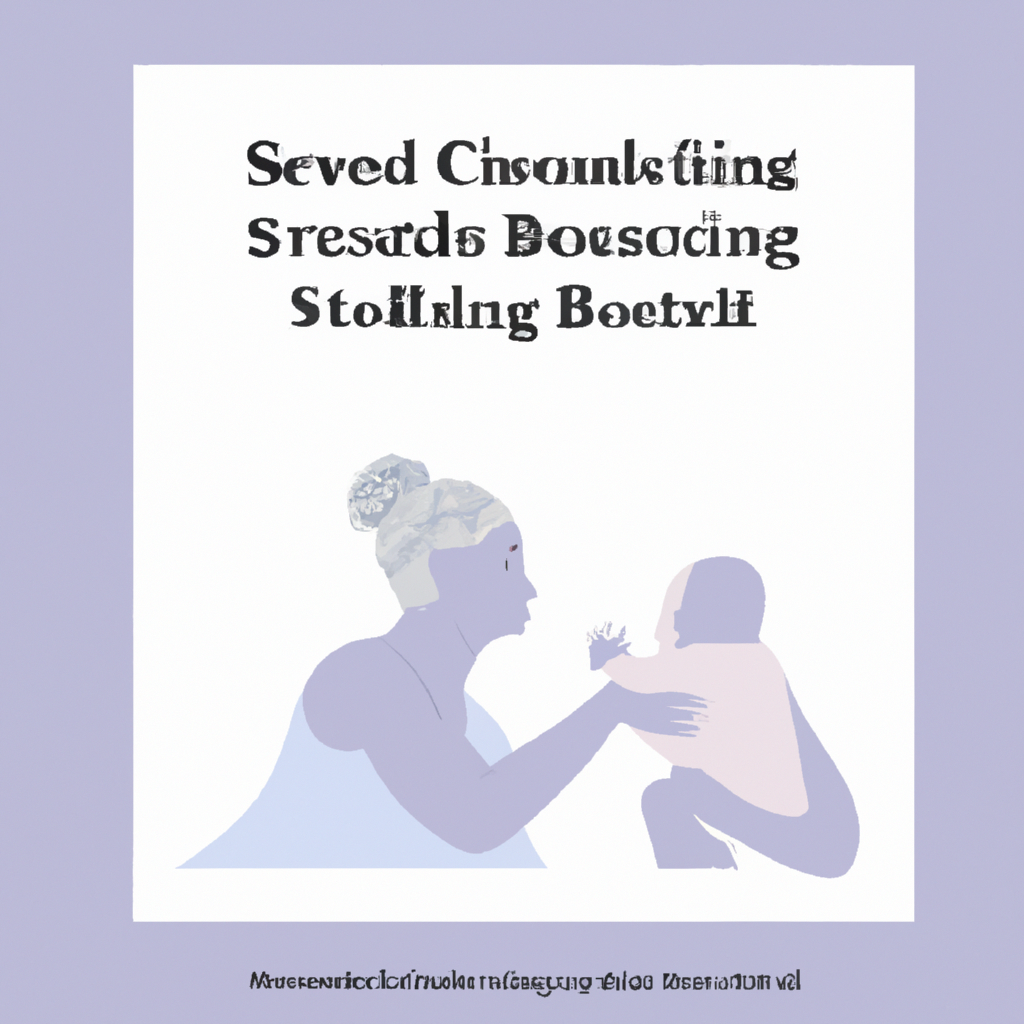Have you ever encountered criticism or faced stigma for breastfeeding your baby? In this article, we explore the challenges many mothers face in society when it comes to breastfeeding, dispelling common misconceptions and offering tips on how to cope with criticism and stigma. We understand that breastfeeding is a personal choice, and it is essential to support and respect each mother’s decision. Let’s delve into the world of breastfeeding and learn how to embrace and celebrate this natural and beautiful act of nurturing our little ones.


Understanding the Criticism and Stigma
Different perspectives on breastfeeding
Breastfeeding is a topic that tends to evoke strong opinions and varied perspectives. While many people are supportive of breastfeeding, there are others who hold negative views or harbor misconceptions about it. Some prevalent criticisms of breastfeeding include concerns about the inconvenience and discomfort it may cause, objections to breastfeeding in public, and the belief that formula feeding is just as good as breastfeeding. It’s important to remember that these criticisms often stem from personal beliefs, lack of knowledge, or societal pressures, rather than evidence-based facts.
Ways criticism and stigma manifest
Criticism and stigma surrounding breastfeeding can manifest in various ways, affecting mothers both emotionally and practically. Many breastfeeding mothers have reported feeling judged or shamed by family members, friends, or strangers for their choice to breastfeed. They may encounter negative comments, disapproving looks, or even public shaming while breastfeeding in public. Workplace discrimination can also be a challenge, with employers and coworkers displaying uncomfortable or unsupportive attitudes towards breastfeeding mothers. Cultural and religious beliefs can further contribute to the stigma, as some traditions or practices may discourage breastfeeding or view it as inappropriate.
Addressing Myths and Misconceptions
Breastfeeding vs. formula feeding: debunking the myths
One common misconception is that formula feeding is just as good as breastfeeding. While formula can provide adequate nutrition, it cannot replicate the numerous benefits of breast milk. Breast milk is specially tailored to meet a baby’s changing nutritional needs, boosts the immune system, and promotes bonding between mother and child. It contains antibodies that help protect against infections and diseases, reducing the risk of illness. Breastfeeding also has long-term health benefits for both mother and baby, such as reducing the risk of obesity, diabetes, and certain cancers. By debunking these myths, we can encourage a better understanding of the vital role breastfeeding plays in a child’s health and development.
Breastfeeding in public: breaking down the misconceptions
Breastfeeding in public continues to be a subject of controversy. Many misconceptions persist, causing breastfeeding mothers to feel self-conscious or embarrassed when nursing their babies outside of their homes. It’s essential to separate fact from fiction and educate society on the rights and realities of breastfeeding. Breastfeeding is a natural and normal way to nourish a child, and laws in many countries protect a mother’s right to breastfeed in public spaces. By sharing information and promoting acceptance, we can help break down the misconceptions and create a supportive environment for breastfeeding mothers.
Navigating Criticism from Family and Friends
Communicating your decision confidently
When facing criticism from family and friends, it’s crucial to approach the conversation with confidence and assertiveness. Begin by expressing your commitment to breastfeeding and the reasons behind your decision. Emphasize the benefits for both you and your baby, such as improved health outcomes and bonding. Communicate that breastfeeding is your choice and the best option for your family. By conveying your confidence in your decision, you may help others understand and respect your choice.
Responding to negative comments
Negative comments can be hurtful, but it’s important not to let them undermine your decision or affect your self-esteem. Responding calmly and confidently can help diffuse tense situations. Acknowledge the criticism, but also provide factual information to counter any misconceptions. Use phrases like, “I appreciate your concern, but breast milk provides essential nutrients and antibodies that benefit my baby’s health,” or “Breastfeeding is a natural and beautiful way to nourish my child, and I am confident in my decision.” Remember, you have the right to breastfeed and the well-being of your child is your priority.
Seeking support from like-minded individuals
Building a support network of like-minded individuals can be invaluable when facing criticism. Seek out local breastfeeding support groups, parenting classes, or online communities where you can connect with other breastfeeding mothers who understand your challenges and can provide encouragement. Surrounding yourself with supportive individuals can strengthen your resolve and provide emotional support during difficult times.
Overcoming Social Stigma and Peer Pressure
Educating others about the benefits of breastfeeding
One way to combat social stigma is through education. Share accurate information and research about the benefits of breastfeeding with your family, friends, and broader social circle. Explain how breast milk contains essential nutrients that promote optimal growth and development, and how breastfeeding contributes to a healthier society as a whole. By presenting the facts, you can help dispel myths and misconceptions, shifting the conversation towards a more positive and supportive view of breastfeeding.
Self-advocacy: asserting your rights and needs
Don’t be afraid to speak up for yourself and assert your rights as a breastfeeding mother. Familiarize yourself with the laws and regulations regarding breastfeeding in your country or state, so you can confidently advocate for your needs. If you encounter resistance or discrimination, calmly and assertively remind others of your legal rights. By standing up for yourself and asserting your needs, you can create a more supportive environment for breastfeeding mothers.
Finding support groups or online communities
Finding support from breastfeeding advocacy groups or online communities can provide a sense of belonging and empowerment. These groups offer a safe space to share experiences, seek advice, and find encouragement from others who have faced similar challenges. Engaging with others who support breastfeeding can help combat feelings of isolation and provide the strength to overcome social stigma and peer pressure.


Handling Criticism in the Workplace
Employer and coworker attitudes
Unfortunately, not all workplaces are accommodating or understanding when it comes to breastfeeding. Some employers and coworkers may hold negative attitudes or lack awareness about the benefits and rights associated with breastfeeding. To address this, it is essential to create a dialogue and advocate for your needs. Openly communicate with your employer about your desire to continue breastfeeding after returning to work and discuss the potential accommodations you may require.
Understanding workplace breastfeeding laws
Familiarize yourself with the breastfeeding laws in your country or state to know your rights as a working mother. Many countries have laws that require employers to provide reasonable break times and private spaces, other than bathrooms, for expressing milk. By understanding these laws, you can educate your employer if they are not meeting the necessary requirements for a breastfeeding-friendly workplace.
Negotiating breastfeeding-friendly accommodations
If your workplace is not initially supportive, it may be necessary to negotiate for breastfeeding-friendly accommodations. Present your employer with a written proposal detailing the accommodations you need, such as a private room for pumping, flexible break times, or access to a refrigerator for milk storage. Emphasize the benefits of breastfeeding for both you and your employer, including increased employee retention and productivity due to improved maternal and infant health.
Dealing with Cultural and Religious Criticism
Cultural beliefs and traditions surrounding breastfeeding
Cultural beliefs and traditions can significantly impact the perception of breastfeeding. It’s crucial to navigate cultural criticism with respect and open-mindedness. Engage in open dialogue to understand the perspectives of those who hold different beliefs. Share information about the benefits of breastfeeding within their cultural framework, highlighting any traditional practices that promote breastfeeding. By having respectful conversations, you can challenge misconceptions and bridge cultural gaps.
Religious perspectives and breastfeeding practices
Religion plays a significant role in shaping attitudes towards breastfeeding. While some religious traditions strongly support breastfeeding, others may have differing perspectives. Seek to understand the religious views within your community and engage in conversations that explore the intersection of religious beliefs and the importance of breastfeeding. Emphasize the shared values of nurturing and caring for children, as these can serve as common ground for discussions.
Engaging in open dialogue and respectful discussions
To overcome cultural and religious criticism, it is essential to engage in open dialogue and respectful discussions. Demonstrate empathy and seek to understand the perspectives of those who hold different beliefs. Share personal experiences and provide scientific evidence that aligns with their cultural or religious values. By fostering mutual respect and understanding, it is possible to challenge stereotypes and promote a more inclusive and supportive environment for breastfeeding mothers.


Coping with Public Criticism and Shaming
Responding to negative comments or judgmental looks
Receiving negative comments or judgmental looks while breastfeeding in public can be disheartening. Remember that these reactions often stem from ignorance or societal pressures, rather than a reflection of your parenting choices. Instead of engaging in confrontations, focus on remaining confident and calm. Remind yourself that you have the right to breastfeed in public and that you should not be made to feel ashamed for providing the best nutrition for your child.
Building confidence and self-acceptance
Building confidence and self-acceptance is essential when facing public criticism and shaming. Surround yourself with a supportive network of individuals who understand and validate your decision to breastfeed. Reflect on the benefits and joy that breastfeeding brings to your life and your child’s well-being. Engage in positive self-talk and remind yourself that you are providing the best possible start for your baby.
Focusing on the well-being of your child
Ultimately, the well-being of your child should be your primary focus. Remind yourself that your decision to breastfeed is based on providing the optimal nutrition and health benefits for your baby. By prioritizing your child’s well-being, you can deflect public criticism and shaming, knowing that you are making the best choice for your family.
Seeking Professional Support
Working with lactation consultants
Lactation consultants are highly trained professionals who specialize in assisting breastfeeding mothers. They provide valuable support, guidance, and education to help overcome challenges and ensure successful breastfeeding. If you are facing criticism or having difficulties with breastfeeding, seeking the help of a lactation consultant can be tremendously beneficial. They can offer personalized strategies and techniques tailored to your specific needs, empowering you to navigate any obstacles you may encounter.
Reaching out to healthcare providers
In addition to lactation consultants, healthcare providers such as doctors, nurses, and midwives can offer important support during your breastfeeding journey. They can address any concerns, provide medical advice, and refer you to appropriate resources. Don’t hesitate to reach out to your healthcare provider if you feel overwhelmed or need additional support.
Utilizing mental health services if needed
Facing criticism and stigma can take a toll on your emotional well-being. If you find yourself struggling with anxiety, depression, or other mental health challenges as a result of the criticism, it may be helpful to seek professional mental health services. A therapist or counselor can provide a safe space for you to process your feelings, develop coping strategies, and navigate the emotional impact of the criticism.


Building a Strong Support System
Surrounding yourself with supportive family and friends
Having a strong support system is crucial when facing criticism and stigma around breastfeeding. Seek out family members and friends who are understanding and supportive of your decision to breastfeed. Surround yourself with individuals who uplift and encourage you during challenging times and celebrate your accomplishments in your breastfeeding journey.
Connecting with breastfeeding advocacy organizations
Breastfeeding advocacy organizations can provide valuable resources and support for breastfeeding mothers. These organizations often offer online forums, helplines, and educational materials. Connecting with these organizations can help you expand your support network and gain access to expert advice and guidance.
Sharing experiences and seeking guidance from other breastfeeding mothers
It can be reassuring and empowering to connect with other breastfeeding mothers who have experienced similar challenges and criticisms. Sharing experiences with a trusted group of individuals who have navigated similar journeys can provide validation and guidance. Online and in-person support groups offer an opportunity to exchange stories, seek advice, and find comfort in knowing that you are not alone.
Empowering Yourself and Others
Promoting positive narratives around breastfeeding
Promoting positive narratives around breastfeeding can be a powerful way to combat criticism and stigma. Share your own breastfeeding experiences and celebrate the joys and benefits of breastfeeding. Use social media platforms, blogs, or local community events to spread awareness and educate others about the beautiful and natural process of breastfeeding. By creating a positive dialogue, we can challenge negative narratives and foster a supportive environment for breastfeeding mothers.
Becoming an advocate for breastfeeding rights
Advocating for breastfeeding rights is crucial in addressing criticism and stigma. Get involved in local or national breastfeeding advocacy organizations and support their initiatives to protect and promote breastfeeding. Write letters to policymakers, attend public hearings, or participate in awareness campaigns. By actively advocating for breastfeeding rights, you can help dismantle barriers and create a more inclusive society.
Educating others about the importance of supporting breastfeeding mothers
Education plays a vital role in changing attitudes and perceptions. Share evidence-based information about the importance of supporting breastfeeding mothers with your family, friends, and community. Encourage open conversations and emphasize the benefits of breastfeeding for both mothers and babies. By educating others, you can promote understanding and empathy, fostering a positive environment for breastfeeding mothers and their children.
In conclusion, dealing with criticism and stigma surrounding breastfeeding can be challenging, but it’s essential to remember the numerous benefits it provides for both mother and child. By understanding the different perspectives on breastfeeding, addressing myths and misconceptions, and seeking support from various sources, you can navigate criticism with confidence. Building a strong support system and empowering yourself and others through education and advocacy can help create a more supportive and accepting environment for breastfeeding mothers. Remember, you are making the best choice for your child, and your decision to breastfeed should be celebrated and respected.
